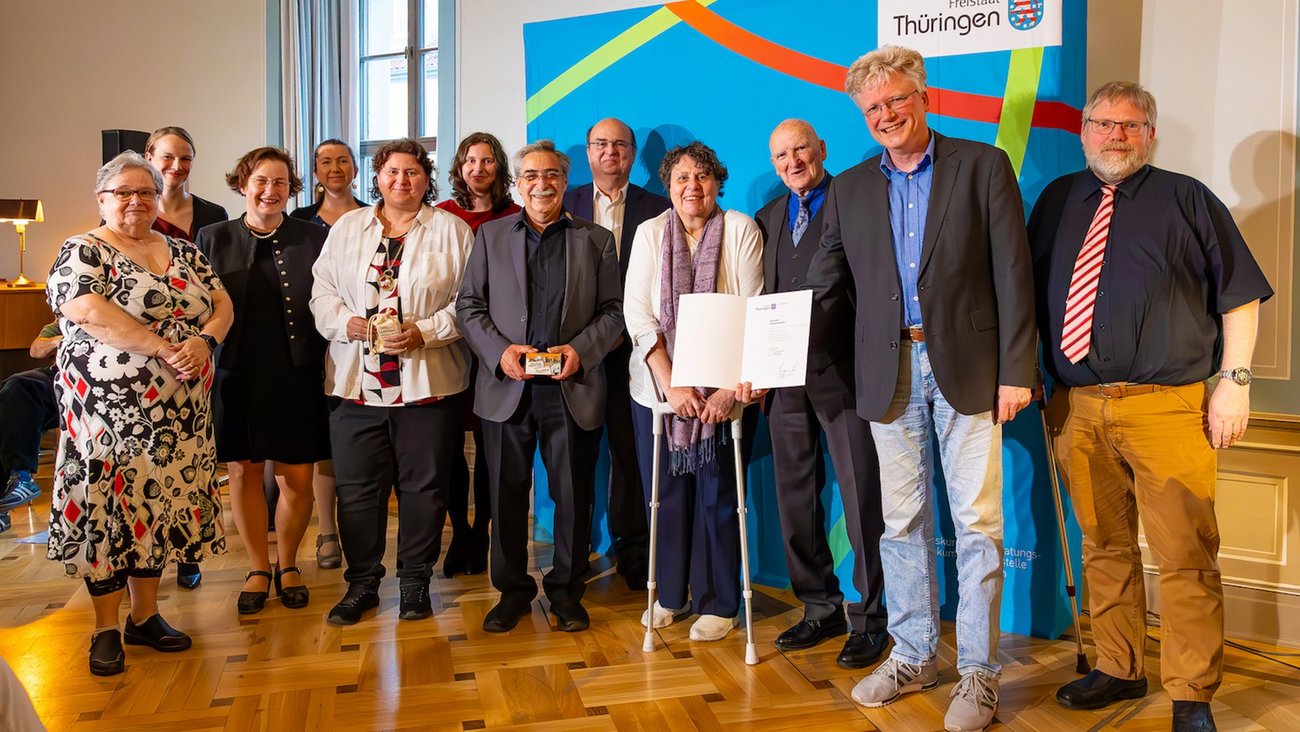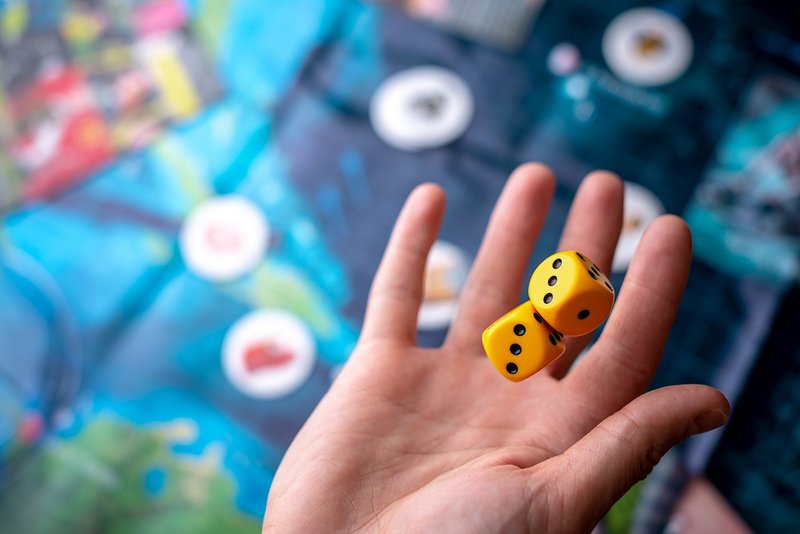
Board games recognised as cultural heritage
UNESCO Commission in Thuringia nominates "German Board Game Culture" for national list
By Peter Budig
The Poetry Slam, the circus as a performance art, Berlin’s techno culture, Heidelberg’s hip hop scene and German board game culture – these all have one thing in common: they have been designated intangible cultural heritages per UNESCO guidelines. While this only applies initially to the German federal state of Thuringia in respect of German board game culture, efforts are ongoing to have this cultural heritage added to the nationwide inventory.
Years of effort finally pay off
“This is the result of hard work and perseverance across the board,” says a relieved Tom Werneck. He and others have been trying for years – initially in Bavaria and then in Thuringia – to get “play as a cultural asset” designated an intangible cultural heritage. Tom knows his efforts in the board game industry are part of “a marathon, not a sprint”. He has fought many battles, both as founding member of the Spiel des Jahres (English: “Game of the Year”) association and founder of his own games archive. His Game Inventors’ Convention originally based in Haar, near Munich, has now moved to the Spielwarenmesse in Nuremberg. A number of “heavyweights” joined the battle for the sake of culture: Prof. Dr Karin Falkenberg (Director of the Nuremberg Toy Museum), Dagmar de Cassan (the grande dame of the games world in Austria, known for Austria’s largest games fair Spielefest Wien and donator of 31,000 board games to Altenburg), Prof. Dr Jens Junge (holder of a chair of game research and founder of the Institute for Ludology at SRH Berlin) and Christian Wallisch (long-standing president of the Ali Baba Spieleclub, a games club in Nuremberg) all pulled together. They initially failed in the highly complicated application process in Bavaria, and needed two attempts for success in Thuringia. To celebrate and be honoured for this achievement, they then all travelled to Altenburg, a city with 36,000 inhabitants located in the very east of Thuringia and also known as the birthplace of the Skat card game.
Objectives of the UNESCO
The United Nations Educational, Scientific and Cultural Organization (UNESCO) is a specialised agency of the United Nations (UN). It was founded in 1945 with the aim of promoting peace and security through international cooperation in education, sciences, culture and communication.
Intangible cultural heritage
“People dance, celebrate and sing. They maintain customs and relationships and take care of their environment. In doing so, they preserve and shape their cultural heritage by passing on their wisdom and skills to future generations. UNESCO’s Convention for the Safeguarding of the Intangible Cultural Heritage adopted in 2003 aims to improve the visibility and promote the further development of this living heritage, for example through the international UNESCO lists and through entries in the Nationwide Inventory of Intangible Cultural Heritage in Germany, which acceded to the UNESCO Convention in 2013.”
Joining forces with games fans in Thuringia for “play as a cultural asset”
The latest application was submitted in strong alliance with games fans in Thuringia, namely Gabriele Orymek, her daughter Sarah-Ann, and Michael Schöne from the Altenburger Spieletage games event series. In a press release, Jens Junge, a games activist with an extensive network, said: “The new application in Thuringia gained momentum thanks to the additional support provided by Dagmar de Cassan as well as Maria and Walter Schranz, who demonstrated the transregional importance of the topic with the transfer of more than 31,000 board games from the Austrian Games Museum in Vienna to Altenburg in Thuringia.” He also made it clear there for all time why “play as a cultural asset” merited UNESCO support: “While playing physical board games, people learn indirectly to search for new, better ways and to behave in a variable and flexible manner, whether pitted against one another or in cooperation. Instead of defining information or ideologies as the absolute truth, rules of games can also be questioned in order to ensure fairness between players within a community time and again according to appropriate rules – that is what play as a cultural asset delivers.”
Success! Now on to the nationwide inventory
“German board game culture” has made it onto the list in Thuringia. Nine cultural forms were added with it, including the dahlia tradition in central Elstertal, the gunsmith and engraving trade in south Thuringia – and the German board game culture. The applicants were honoured in person in the presence of State Secretary Tina Beer. She said: “People are reminded of what home means through intangible cultural heritage. It must be nurtured, and that is precisely what you are doing. That is why you have been honoured as individuals – in gratitude for the work you put into our intangible cultural heritage. Through your efforts, you are also creating identity and strengthening social cohesion in your region. The dedication shown by people in Thuringia to their traditions is impressive. Your commitment is essential to preserving our rich cultural heritage. I thank each and every one of you most sincerely for this.”
The UNESCO Commission in Thuringia has now added German board game culture as a traditional cultural form to the state inventory of intangible cultural heritage and proposed it for inclusion in the nationwide inventory.
Nominations for the Federal Register of Intangible Cultural Heritage
About the author
Peter Budig studied Protestant theology, history and political science. He worked as a freelance journalist, headed up the editorial department of a large advertising paper in Nuremberg for ten years and was the editor of Nuremberg’s Abendzeitung newspaper. He has been freelancing again since 2014 as a journalist, book author and copywriter. Storytelling is absolutely his favourite form.




![[Translate to Englisch:] [Translate to Englisch:]](/fileadmin/_processed_/d/7/csm_Teaser_0d2b42f5eb.jpg)
